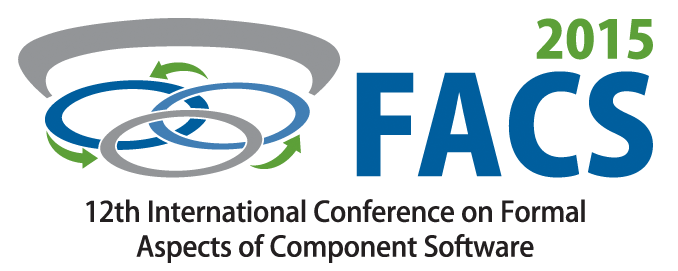News
(Papers without previously submitted abstracts can also be submitted until this time.)
Overview and Scope
Component-based software development proposes sound engineering
principles and techniques to cope with the complexity of
software-intensive systems. However, many challenging conceptual and
technological issues remain. Furthermore, the advent of
service-oriented and cloud computing has brought to the fore new
dimensions, such as quality of service and robustness to withstand
faults, which require revisiting established concepts and developing new
ones in order to take advantage of the opportunities offered by those
architectures. As software applications themselves become components
of wider socio-technical systems, further challenges arise from the
need to create and manage interactions, which can evolve in time and
space, and rely on resources that can change in various ways.
FACS 2015 is concerned with how formal methods can be used to make
component-based development fit for the new architectures and
the systems that now pervade the world. Formal methods have provided
foundations for component-based software through research on
mathematical models for components, composition and adaptation, and
rigorous approaches to verification, deployment, testing, and
certification.
The conference seeks to address the development and application of
formal methods in all aspects of software components and
services. Specific topics include, but are not limited to:
- formal models for software components and their interaction;
- formal aspects of services, service-oriented architectures, business
processes, cloud computing, ensembles, and similar artifacts;
- design and verification methods for software components and services;
- composition and deployment: models, calculi, languages;
- formal methods and modeling languages for components and services;
- model-based and GUI-based testing of components and services;
- models for QoS and other extra-functional properties (e.g., trust,
compliance, security) of components and services;
- components for real-time, safety-critical, secure, and/or embedded
systems;
- probabilistic techniques for modeling and verification;
- case studies and experience reports;
- update and reconfiguration of component and service architectures;
- formal and rigorous approaches to software adaptation and
self-adaptive systems;
- tools supporting formal methods for components and services.

